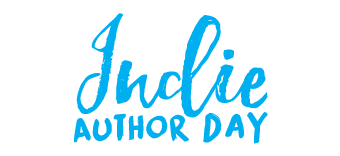Guest Post: NaNoWriMo
Form a Creative Community—NaNoWriMo-style
We writers tend to be solitary creatures. We sit in the penumbra of the light at our desks, anguishing over the inertia of a plot, wadding up pieces of paper, biting our fingernails, and hoping that the next cup of coffee will deliver more inspiration than jitters.
Or that is how we often think of ourselves. And it’s true, a lot of actual writing tends to happen in solitude. But what often goes overlooked is that most writers’ work is actually spawned and supported by a creative community.
Take C.S. Lewis and J.R.R. Tolkein. When they first met, they were just two men with a “writing hobby,” as Lewis put it. They loved to talk about Nordic myths and epics, but they knew their colleagues in the Oxford English department wouldn’t give their fanciful tales any critical gravitas, so they met regularly at a pub to imbibe pints and stories. As they shared their writing more and more, they met other writers who felt like outsiders as well, so they formed the Inklings, a group of writers who were searching with “vague or half-formed intimations and ideas,” as Tolkien wrote. The themes that would later appear in Lewis and Tolkein’s books first emerged during the Inklings’ weekly discussions. Tolkien said Lewis’s “sheer encouragement” was an “unpayable debt.” “He was for long my only audience. Only from him did I ever get the idea that my ‘stuff’ could be more than a private hobby.”
Our culture emphasizes the notion of a solitary heroic ideal, rugged self-starters who meet challenges and overcome adversity, whether it’s the sports star who leads his or her team to victory or the scientist who cures a deadly disease. Solitude no doubt plays an important element in writing, but if you trace the history of literature, you realize how it takes a veritable village to write a book. Virginia Woolf ‘s singular aesthetic was nurtured during nights of conversation with her spirited Bloomsbury crowd. Hemingway fed off the creative energy of Paris in the 20s, not to mention the writing advice of Gertrude Stein and Sherwood Anderson (and what would Gertrude Stein have been without Alice B. Toklas?). Langston Hughes and Zora Neale Hurston traveled together, wrote together, and defined their unique voices alongside each other as leading figures of the Harlem Renaissance. Kerouac, Ginsburg, Burroughs, and the rest of the Beats tumbled, bounded, and danced through their words as if they were an improv group riffing through a scene—creating each other as they created themselves.
Frissons of creativity tend to happen with others.
That’s why NaNoWriMo started its Come Write In program, NaNoWriMo’s community partnership program. We connect local spaces—like libraries, bookstores, and community centers—with our large audience of writers. There are more than 1,000 Come Write In spaces across the country. Come Write In is built for flexibility. You can schedule specific times to have tables, chairs, and power outlets available, or you can be open to drop-in writers at any time.
Finding like-minded creative friends is important for those seminal imaginative sparks to catch fire. “None of us is as smart as all of us,” the saying goes. An initial idea grows through the interchange of ideas, with one idea sparking another idea—and then the light bulb of inspiration glows. Think of a jazz group, where individual musicians riff on a melodic theme. They don’t necessarily know where the song is going. The group has the ideas, not the individual musicians, but unexpected insights emerge, and a beautiful new song flows from the group. The same goes for writers. When you work with others, you’re naturally combining an assortment of different concepts, elaborating and modifying each others’ thoughts.
As Bill Patterson, a NaNoWriMo writer from New Jersey, likes to say, “Writing is a solitary activity best done in groups.” Completing such an arduous task as National Novel Writing Month, which challenges writers to write 50,000 words in a month is just plain easier with others rooting you on. Your writing community can be a goad, a check, a sounding board, and a source of inspiration, support, and even love. There’s a reason it’s difficult to beat the home team in sports: they have an extra teammate, the crowd.
National Novel Writing Month believes in the transformational power of creativity. We provide the structure, community, and encouragement to help people find their voices, achieve creative goals, and build new worlds—on and off the page.


Leave a Reply
Want to join the discussion?Feel free to contribute!